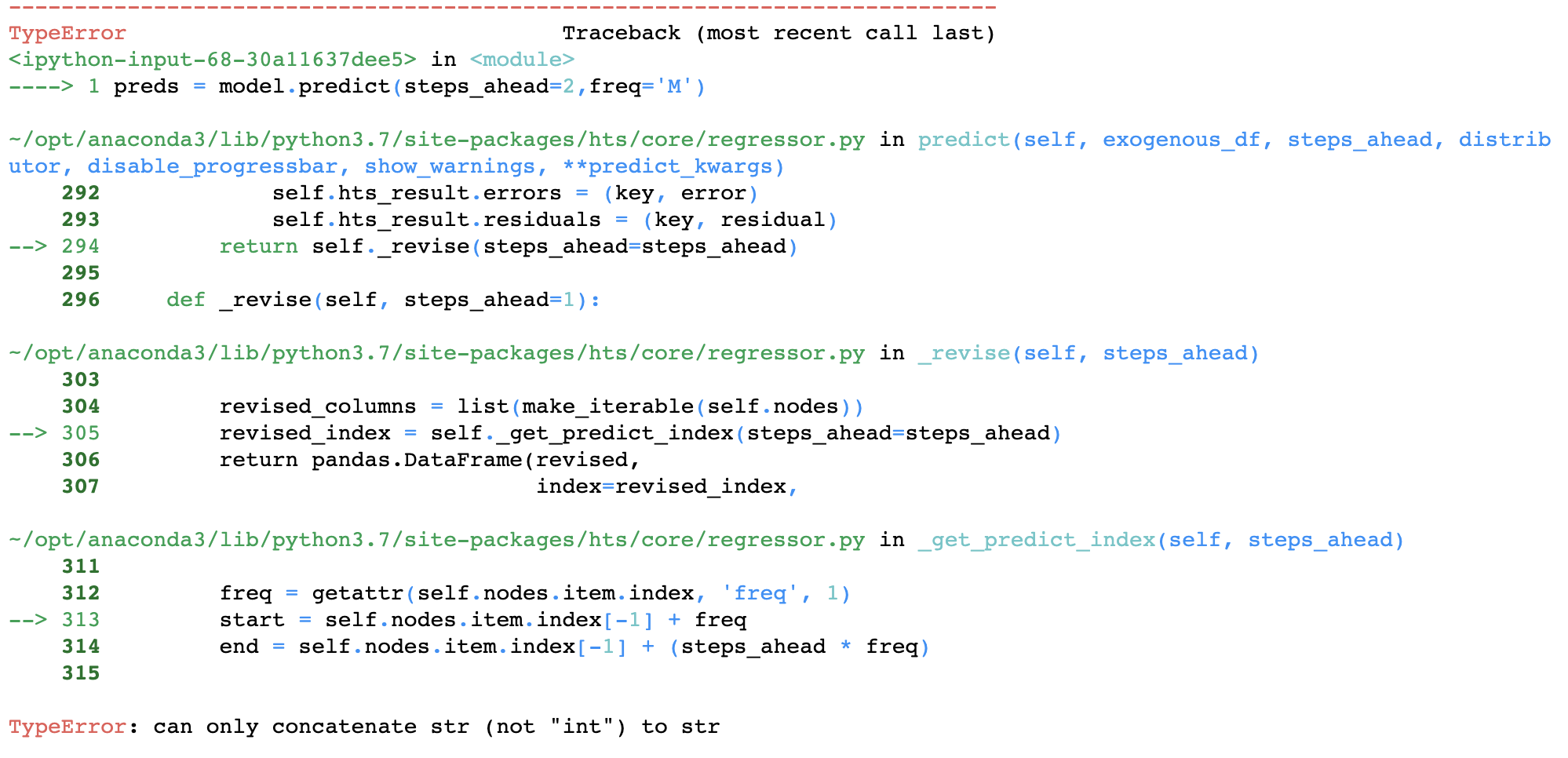NOTE: I unfortunately do not have time anymore to dedicate to this project, contributions are welcome.
Hierarchical Time Series with a familiar API. This is the result from not having found any good implementations of HTS on-line, and my work in the mobility space while working at Circ (acquired by Bird scooters).
My work on this is purely out of passion, so contributions are always welcomed. You can also buy me a coffee if you'd like:
ETH / BSC Address:
0xbF42b9c8F7B69D52b8b986AA4E0BAc6838Af6698
- MIT License
- Documentation: https://scikit-hts.readthedocs.io/en/latest/
Building on the excellent work by Hyndman1, we developed this package in order to provide a python implementation of general hierarchical time series modeling.
Note
STATUS: alpha. Active development, but breaking changes may come.
- Supported and tested on
python 3.6,python 3.7andpython 3.8 - Implementation of Bottom-Up, Top-Down, Middle-Out, Forecast Proportions, Average Historic Proportions, Proportions of Historic Averages and OLS revision methods
- Support for representations of hierarchical and grouped time series
- Support for a variety of underlying forecasting models, inlcuding: SARIMAX, ARIMA, Prophet, Holt-Winters
- Scikit-learn-like API
- Geo events handling functionality for geospatial data, including visualisation capabilities
- Static typing for a nice developer experience
- Distributed training & Dask integration: perform training and prediction in parallel or in a cluster with Dask
You can find code usages here: https://github.com/carlomazzaferro/scikit-hts-examples
- More flexible underlying modeling support
- [P] AR, ARIMAX, VARMAX, etc
- [P] Bring-Your-Own-Model
- [P] Different parameters for each of the models
- Decoupling reconciliation methods from forecast fitting
- [W] Enable to use the reconciliation methods with pre-fitted models
W: WIP
This package was created with Cookiecutter and the audreyr/cookiecutter-pypackage project template.












